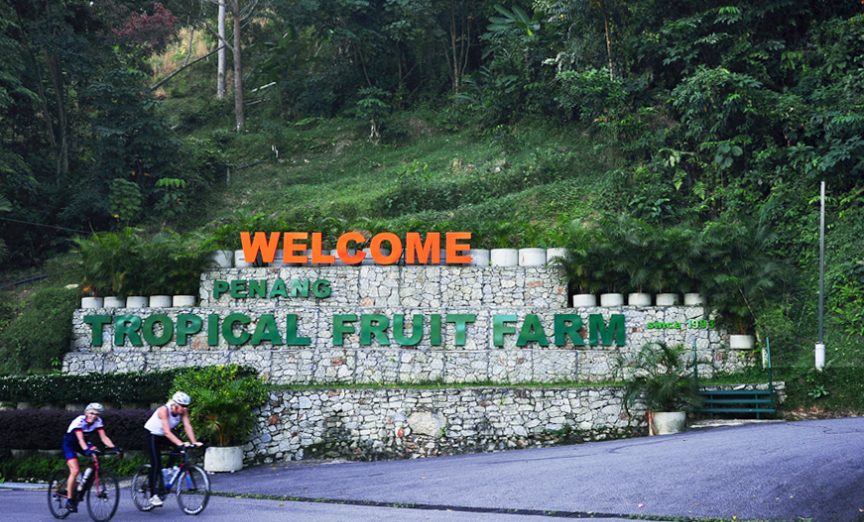HAVE you ever heard of abiu, stinky toe fruit and miracle fruit?
Well, these native fruits to South America, the Carribean and West Africa are surprisingly found at the Penang Tropical Fruit Farm in the hilly terrain of Teluk Bahang, 800ft above sea level.
Since the fruit farm was opened in 1998, orchard owner Quah Ewe Kheng, 75, has often been posed this question by bewildered tourists, “They can grow here?”
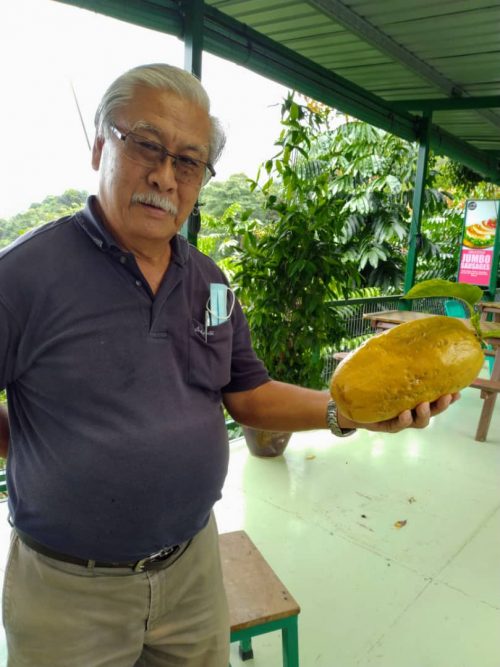
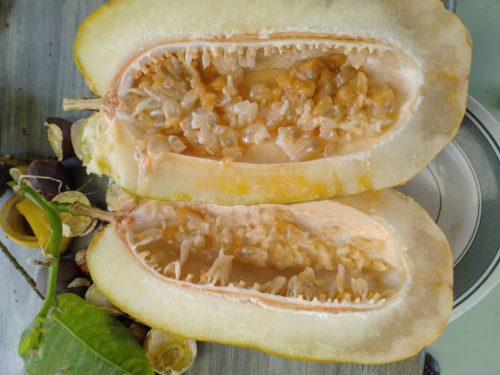
The Penang Tropical Fruit Farm spans 25 acres and boasts of over 200 tropical and subtropical fruit trees. It attracted hordes of tourists, especially from the Middle East, before the Covid-19 crisis hit tourism real hard.
Quah, however, remains optimistic that a vaccine will be found soon and business will return to normalcy.
In the meantime, he continues to grow the farm and conducts guided tours.
Not only will visitors be briefed on the sheer variety of fruits that grow there, they will also get a chance to taste some of ripe ones.
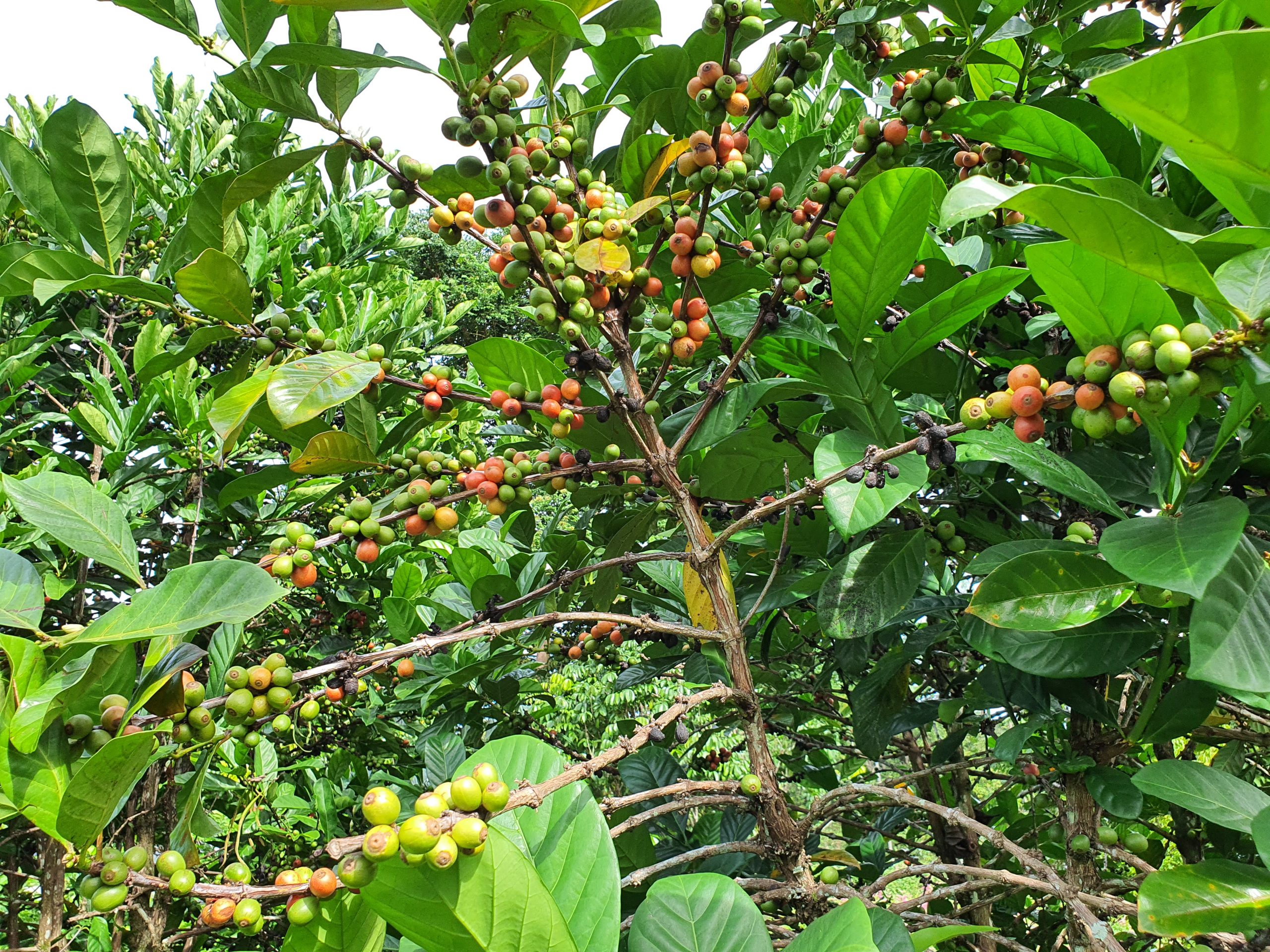
Among the fruits are Indonesian and Australian avocados, Chinese chestnut, sapote (mamey, green, black, white and black), macadamia, Taiwanese grapefruit (pomelos), Fijian longan, star fruits, local figs, bullock’s heart custard apples, lemon, hairless rambutans, passion fruit, Surinam cherry, macadamia nuts, Terengganu cherry, mango, ciku and pear, soursop and mangosteen.
Quah is now eagerly overseeing a rose apple tree growing project.
He plans to induce the trees to flower and fruit and he has metals with fine nettings ready for his workers to cover up the area. It is an open concept whereby visitors will walk through the area and pluck the rose apples from the left or right and eat them as well.
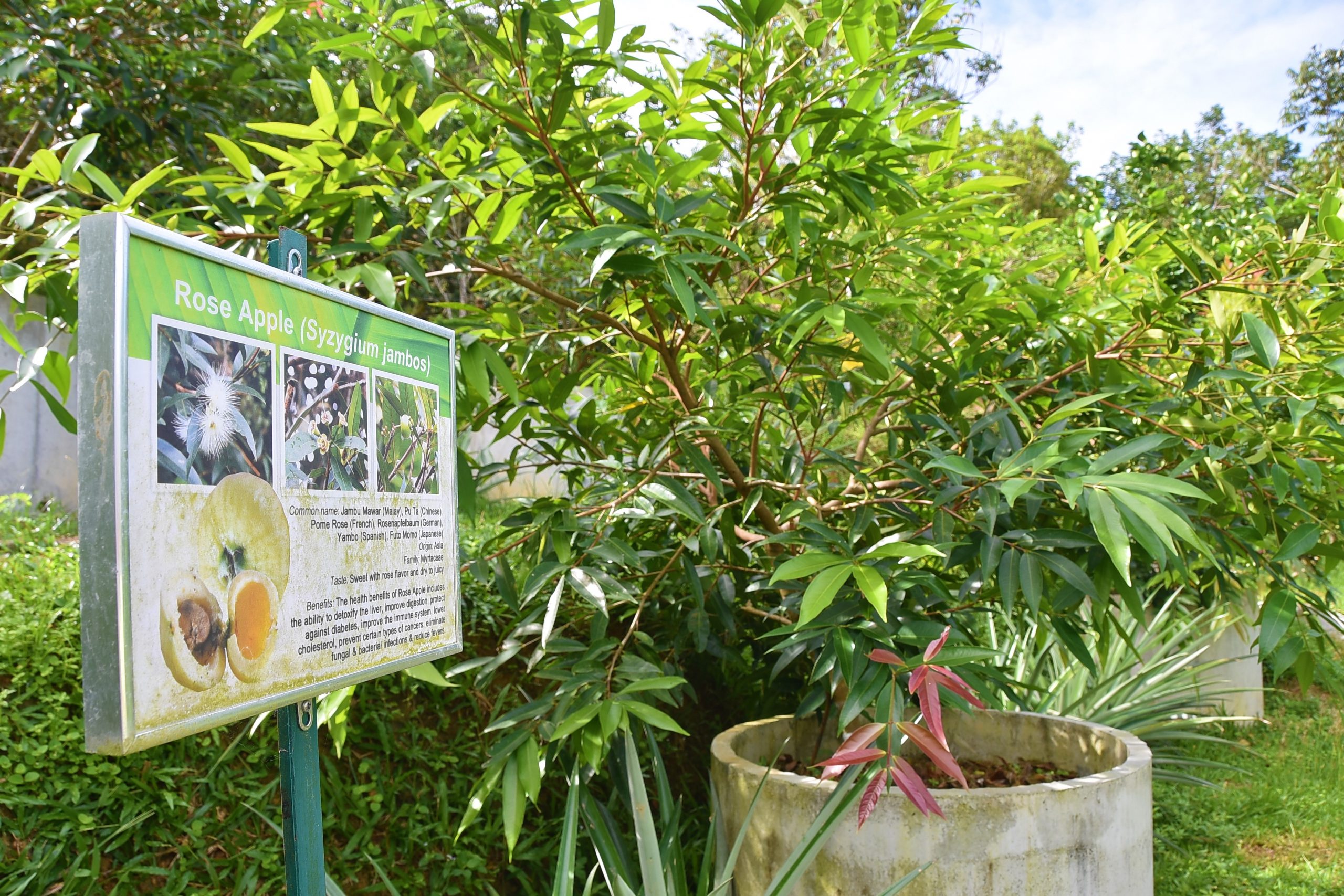
What is also interesting is that the farm grows apple and pear trees to show tourists what they look like. The pear trees are only one year old. They have flowered but failed to fruit, so hopefully something can be seen by October or November next year.
Several coffee plants are also grown for coffee robusta and coffee arabica.
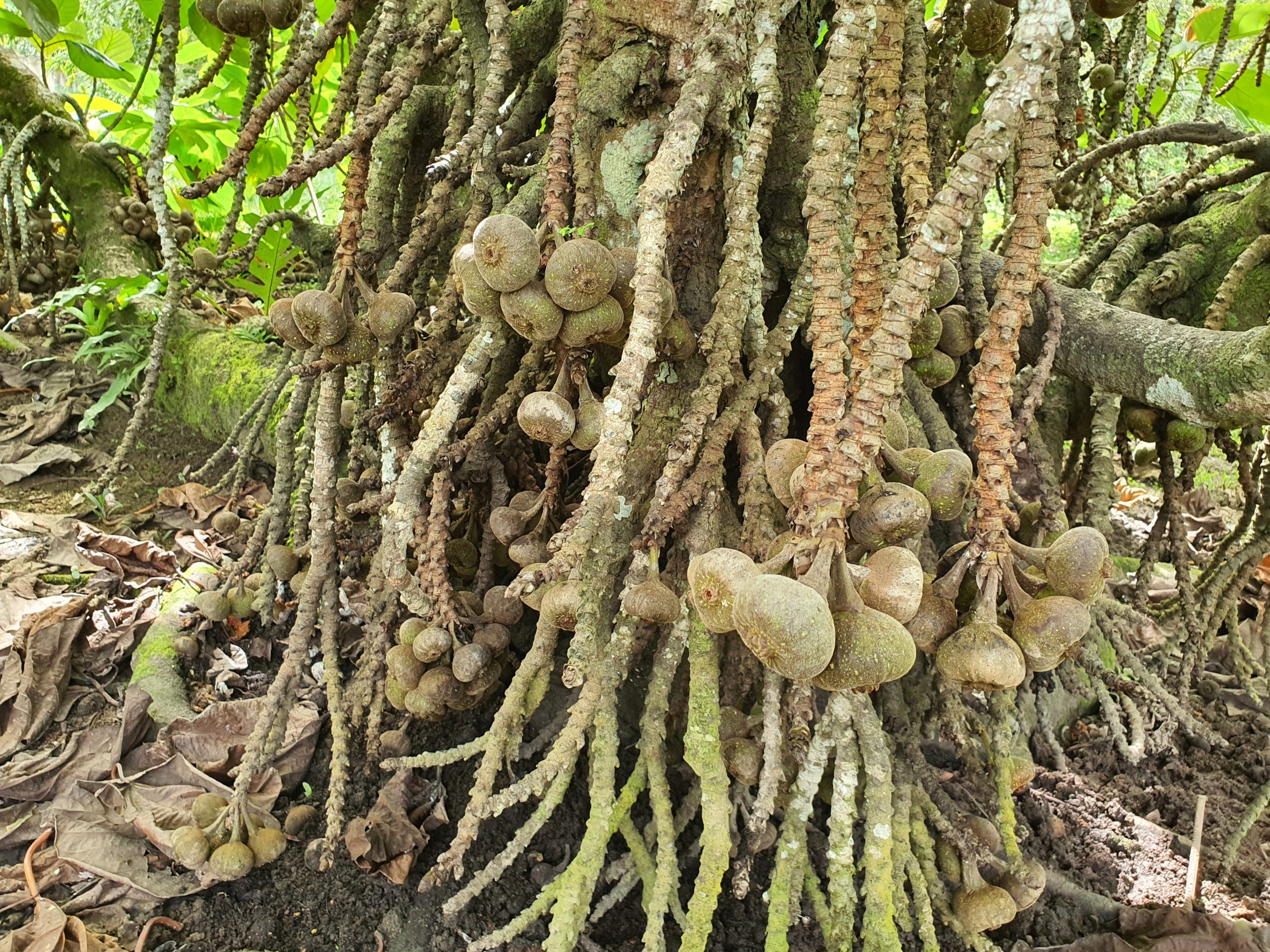
Another attraction will be the two baobab trees which are in the process of growing new leaves after the old ones had dropped off.
Penang can now at least claim to have three baobab trees. The first baobab tree in Penang, standing on the traffic island between Jalan Residensi and Jalan Macalister, is said to be the largest and oldest of its kind in Malaysia at 149 years old.
Quah’s two baobab trees are two years old and have to wait until 10 to 12 years before they can fruit. Baobab fruits are said to be rich in Vitamin C and have high anti-oxidant.
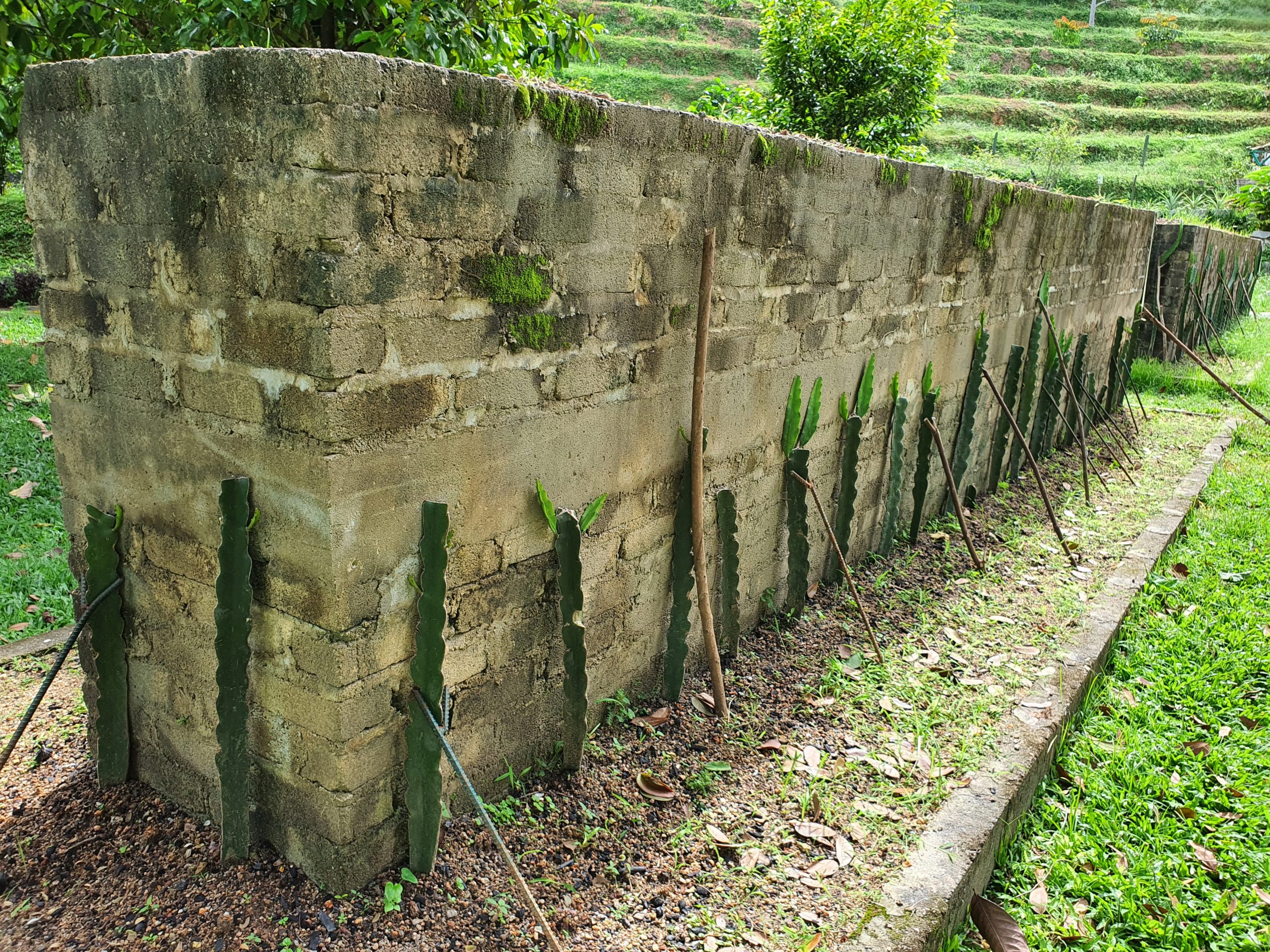
In another part, rows of Hylocereus cactus have been replanted after the diseased ones were removed. So, by next year, do expect some luscious dragon fruits from the farm.
The farm prides itself for being the first to plant dragon fruits in the country after bringing them back from Vietnam in 1970s. As dragon fruits become more and more popular, many bigger farms have sprung up. Currently being grown at the Penang Tropical Fruit Farm are four types of dragon fruits – yellow skin white flesh, red skin red flesh, red skin white flesh and yellow skin white flesh and spiky (yellow pitaya).
Just a stone’s throw from the cactus area is the Hobbit House, which was created by Quah’s business partner Allison Chan Mei Leng, 55.
If luck is on your side, you may get to eat the rare ‘nyior dadeh’. When the coconut is cut open, you get to drink a jelly-like substance instead of coconut water as it has already solidified naturally. Its white flesh taste unappealingly bland. It will, however, go well with some brown sugar.
Another surprise is to see giant passion fruit. Unlike the round-shaped passion fruits like the size of a hockey ball that are sold in the market, the giant passion fruit can be as big as a papaya. Its juicy interior is filled with numerous seeds and taste a bit sourish.
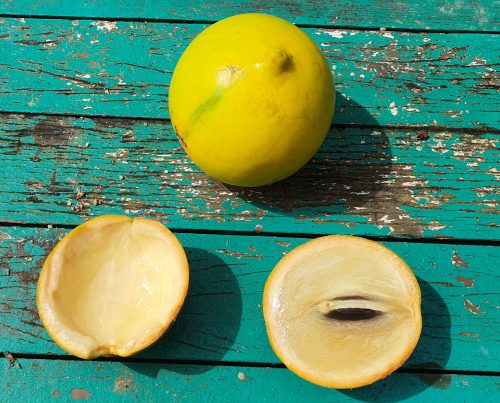
Conspicuously, there are many plants or trees, like papaya, durian and pineapple, grown in round concrete planters or pots.
As Quah explained, they are planted in pots so that the nutrients (from the organic fertilisers) do not run away when it rains. They stay in the pot, thus making the fruits very big. A pineapple can weigh 5kg.
When Quah bought the farm, which was originally a rubber plantation in 1993, and began to grow banana trees at the start, friends thought he had a ‘crazy’ idea.
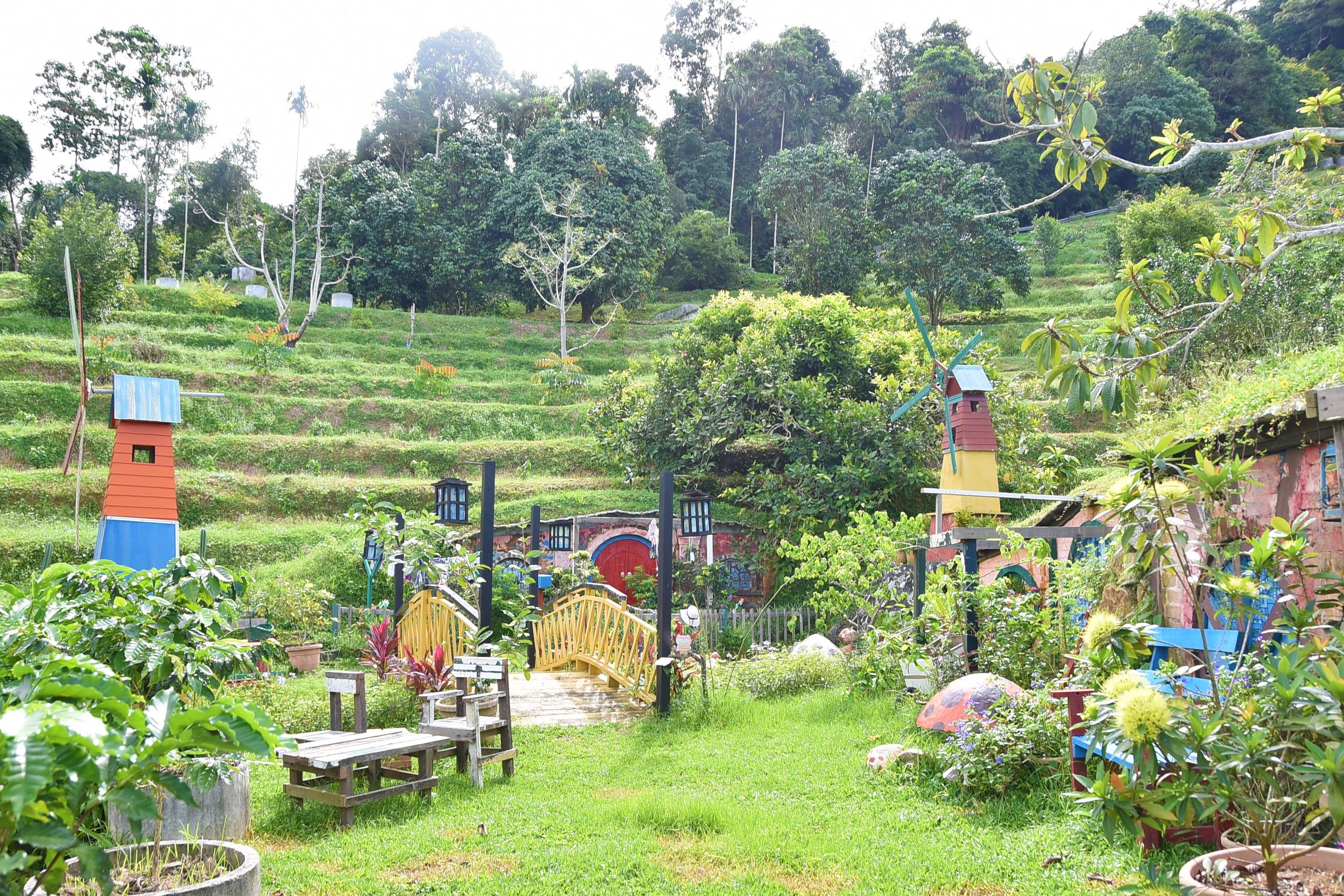
“Actually, I have one thing in mind when I bought this place. I wanted to do something that people have not done – that is my focus,” Quah told Buletin Mutiara in a recent interview.
“And since we stepped into place which is only suitable for agriculture, my foresight is to do fruit.
“Initially, it was a farm to preserve the rare fruits of Malaysia, and then gradually, we introduce more of the local fruits plus the imported fruit trees.
“So, along the way, we found out that the exotic fruits are not suitable commercially due to the fact that they are very sour.
So, we start to convert the farm into more productive fruit trees.”
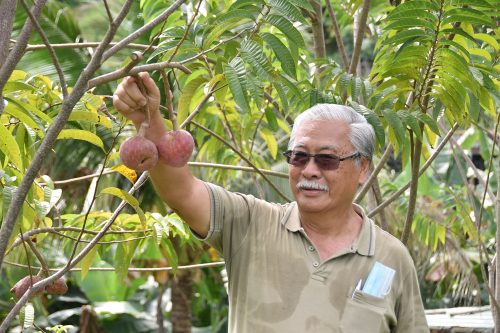
Tripadvisor, the world’s largest travel platform, has ranked Penang Tropical Fruit Farm among the top 10 percent of the world’s tourism attractions. It is another feather in Penang’s tourism cap.
While their labour is bearing fruit, Quah and his workers are facing insurmountable difficulties.
Rats, squirrels, monkeys and wild boar come to destroy or eat the fruits, and the worst of them are the monkeys, who inflict the most damage. Fruit flies are also destructive pests and to prevent them from feeding on or spoiling the fruits, some sticky boards are put near the trees to trap them.
Besides guided farm tour, the farm offers an enzyme tour and gives a lesson on the process of extracting oil from coconuts. (For enquiries, call +6019-4271953 or +60124971931 or email [email protected].)
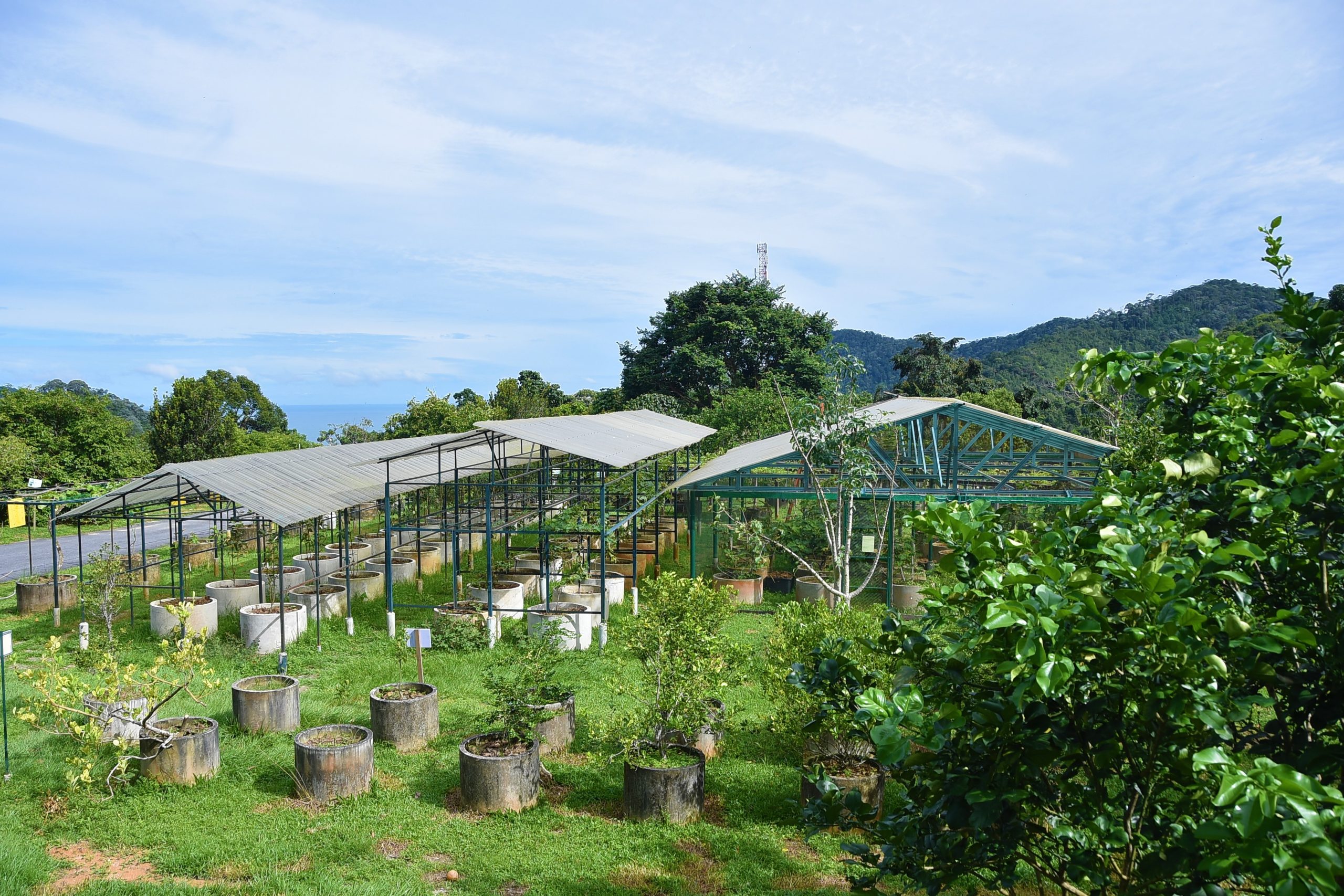
Somehow or rather, Quah is always involved in tourism-related business. He runs the Craft Batik factory in Teluk Bahang, Kasina car rental service and a laundry service.
Looking ahead, Quah said he is in the process of organising a special pasar tani in Balik Pulau.
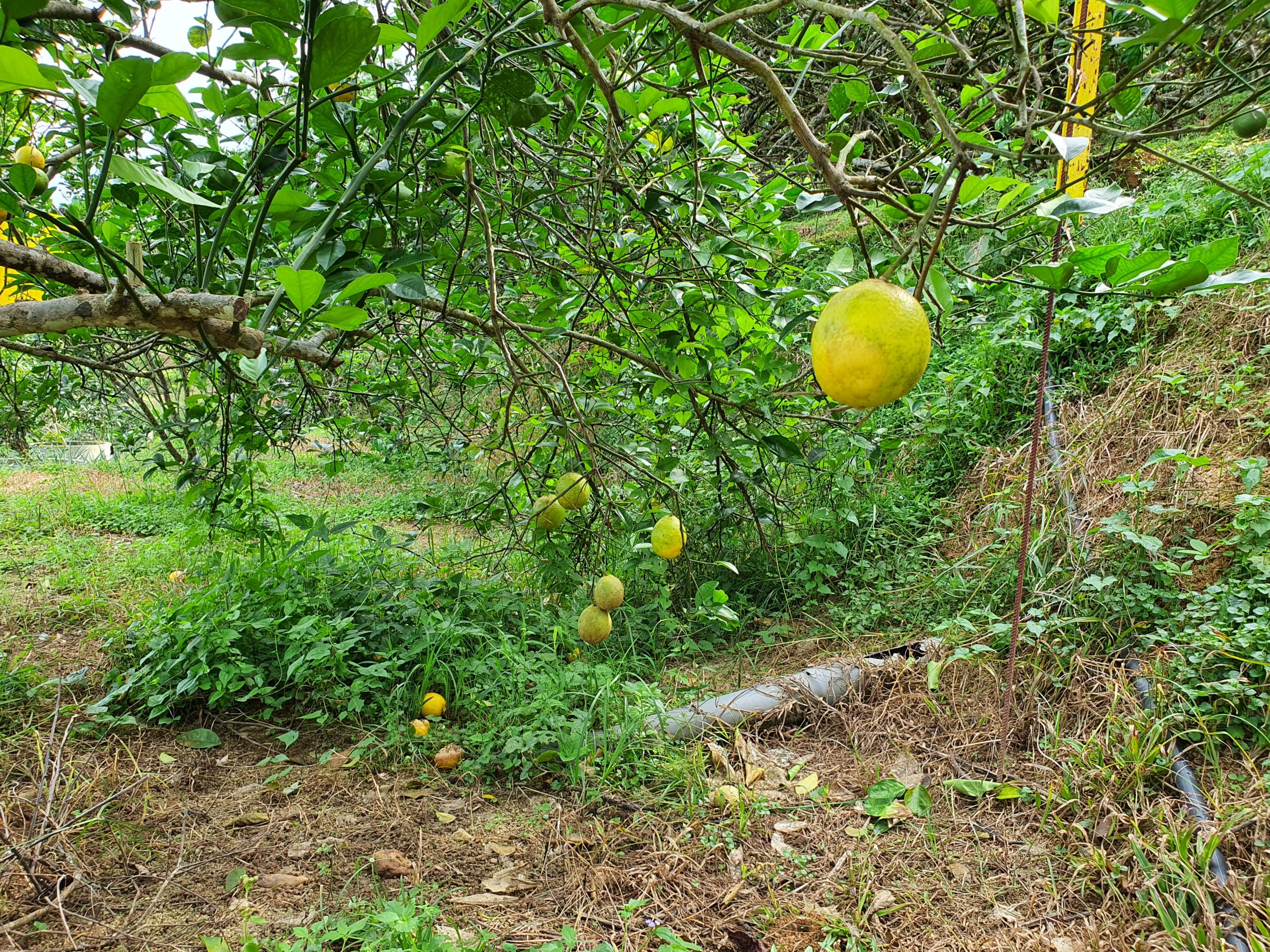
“We are concentrating only on products from the farm with each farmer showcasing their respective farm’s speciality.
“The farmers can sell other products from his farm but they have to have one speciality, like banana, lemon and etc.
“We won’t allow items like slippers or T-shirts to be sold. It is strictly for farm products.
“This means all the farmers will have different types of fruits to showcase every Saturday and Sunday, so that it becomes an interesting market to the tourists,” Quah explained.

Penang executive councillor Yeoh Soon Hin, who is in charge of the state tourism and creative economy, said the Penang Tropical Fruit Farm is one of the several eco-tourism attractions along the Teluk Bahang stretch.
“You can experience a variety of local tropical fruits housed all under one roof at the Penang Tropical Fruit Farm.
“This attraction is home to 250 types of tropical and subtropical fruit trees.
“While the fruiting season comes seasonally, the variety means that visitors can see different fruits and trees blooming during different seasons.
“It is a family-friendly activity that you can easily spend half a day there. From the informative guided tours on various fruiting trees to the beautiful scenery, you can also sample different types of fruits.
“Unknown to many, they are also well-known for their coffee, which is a must-try,” Yeoh said after a recent visit to the farm.
After exploring the farm and the gift shop, nothing beats a refreshing fruit drink from the farm.
Story by K.H. Ong
Pix by Adleena Rahayu Ahmad Radzi and Yap Lee Ying

